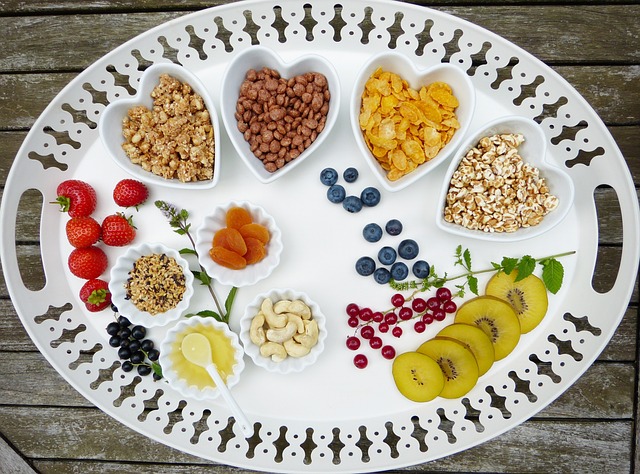The Perfect Diet Types for Hormone Balance
The Perfect Diet Types for Hormone Balance

The Perfect Diet Types for Hormone Balance
Creating a balanced and harmonious hormonal environment within your body is crucial for overall health and well-being. Many factors, including diet, play vital roles in achieving hormonal balance. By making thoughtful choices about what you eat, you can positively impact your hormones and experience a range of benefits, from improved mood to enhanced energy levels. This article delves into diet types that can help you achieve hormonal equilibrium.
The Mediterranean Diet
Based on the traditional eating patterns of Mediterranean countries, this diet emphasizes whole foods such as fresh fruits, vegetables, whole grains, lean proteins, and healthy fats. Rich in omega-3 fatty acids and antioxidants, the Mediterranean diet supports hormonal balance by reducing inflammation and promoting heart health. Studies have shown that the diet's emphasis on olive oil, fish, and nuts can aid in regulating insulin and cortisol levels, thus promoting stability in essential hormones.
The Low Glycemic Index (GI) Diet
Foods with a high glycemic index can cause rapid spikes and crash blood sugar levels, leading to imbalances in insulin and other hormones. Opting for a low GI diet involves consuming foods that have a slower impact on blood sugar. Incorporate whole grains, legumes, non-starchy vegetables, and lean proteins. This approach can help stabilize blood sugar levels and reduce the risk of insulin resistance.
The Plant-Based Diet
A plant-based diet focuses on whole, plant-derived foods and limits or excludes animal products. Research suggests that such a diet can help lower estrogen levels, making it beneficial for individuals with conditions related to estrogen dominance. Plant-based foods are often high in fiber, which aids in detoxification and elimination of excess hormones from the body. Additionally, the diet's abundance of phytochemicals can contribute to hormonal harmony.
The Paleo Diet
The Paleo diet centers around foods our ancestors consumed during the Paleolithic era. Excluding processed foods, grains, and dairy; and prioritizing lean meats, fish, nuts, seeds, and vegetables helps reduce inflammation and support hormonal balance. The diet's emphasis on high-quality protein and healthy fats can also aid in hormone production and regulation.
The Anti-Inflammatory Diet
Inflammation in the body can disrupt hormonal balance. The anti-inflammatory diet involves consuming foods rich in antioxidants, healthy fats, and phytonutrients. Foods like berries, fatty fish, leafy greens, and turmeric can help combat inflammation and promote hormonal equilibrium.
The Balanced Macros Approach
Balancing macronutrients—carbohydrates, proteins, and fats—in your diet can play a vital role in maintaining hormonal harmony. Each macronutrient serves a purpose in hormone production and regulation. For instance, healthy fats are essential for producing hormones, while proteins provide the building blocks for hormone synthesis. Strive for a well-rounded diet that includes a mix of complex carbohydrates, lean proteins, and healthy fats.
The Intermittent Fasting Strategy
Intermittent fasting involves cycling between periods of eating and fasting. This approach can help regulate insulin sensitivity, improve leptin levels (the hormone responsible for appetite control), and promote the production of human growth hormone. Fasting periods give your body a chance to reset and optimize hormone function.
Bottom- Line
Incorporating these diet types into your lifestyle can contribute to hormonal balance. However, it's important to consult a healthcare professional or dietitian before making significant dietary changes, especially if you have underlying health conditions. Remember, achieving hormonal equilibrium is a holistic journey focusing on diet, stress management, exercise, and adequate sleep. Adopting a comprehensive approach can pave the way for a healthier and more balanced life.
